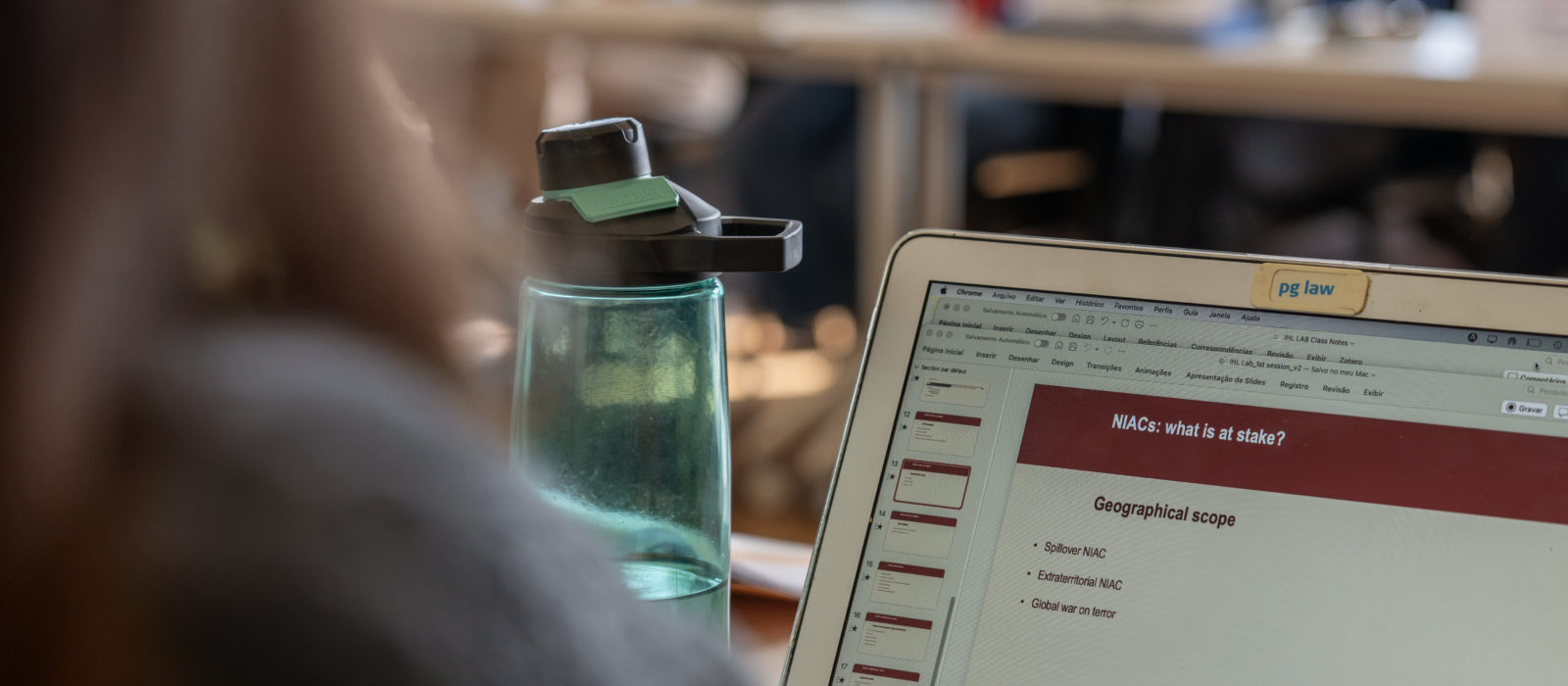Launched in 2024–2025, the Geneva IHL Lab is an ongoing training initiative that gives students a practical, supervised environment to learn how to monitor, document and analyse international humanitarian law (IHL) violations in contemporary armed conflicts.
The Lab is embedded within the Geneva Academy’s research project IHL in Focus: Assessing Compliance in Contemporary Armed Conflict, which produces open-source-based reports on the most intense conflicts worldwide, and the former RULAC project, providing legal classification of armed conflicts.
Through applied exercises, data-collection work, verification techniques, and legal analysis, students engage directly with the methods used by practitioners in humanitarian, human rights and accountability fields.
The Geneva IHL Lab bridges academic study and real-world practice.
It offers students from the Geneva Academy, the Geneva Graduate Institute and the University of Geneva the opportunity to acquire practical skills in monitoring and assessing IHL violations, using methodologies grounded in independence, impartiality and open-source investigation standards.
The Lab complements advanced master programmes while fostering collaboration among students from diverse academic backgrounds.
Students engage in a structured sequence of tasks that mirror professional investigative workflows:
- Data Collection: extracting relevant information from ACLED and other open-source platforms, with a focus on priority IHL themes and conflict contexts defined by the IHL in Focus project .
- Critical Data Review: evaluating information using established open-source investigation methodology.
- Legal Analysis: assessing whether data supports legally relevant findings according to IHL and applicable standards of proof.
Each student works on a specific IHL theme or one or multiple conflicts, triangulates data, and may propose violations for inclusion in IHL in Focus reports or in analytical background work for those reports .
Students may also contribute to complementary projects such as War WATCH.
Participants gain:
- Training in principles and rules of international humanitarian law
- Understanding of open-source investigation methodologies
- Supervised experience in data collection, verification and legal analysis
- Ability to assess the reliability and credibility of open-source information
- Capacity to apply legal standards to draw legally relevant conclusions about violations of rules of international humanitarian law
These skills are directly relevant for future work in international organisations, NGOs, investigative mechanisms and academic research.
The Lab takes place during the Spring Semester of the academic year.
Sessions include:
- Instruction on open-source research methodology
- Discussion of challenges in monitoring IHL compliance
- Plenary reviews of students’ ongoing research
Teaching by Geneva Academy experts and external practitioners from NGOs, tribunals and monitoring bodies
Assignments are conducted individually or in small groups and involve data gathering, conflict classification and IHL compliance analysis under continuous supervision.
The Lab is open to MAS and LLM students from the Geneva Academy, as well as master’s students from the Geneva Graduate Institute and the University of Geneva.
Applicants must demonstrate:
- Strong interest in IHL
- Willingness to learn data-collection and verification techniques
- Strong research abilities and problem-solving mindset
- Proficiency in English
- Ability to work both independently and collaboratively
Admission is competitive. Applications for students from the Geneva Graduate Institute and the University of Geneva include a CV, one-page cover letter and transcript submitted to ihllab@geneva-academy.ch.

